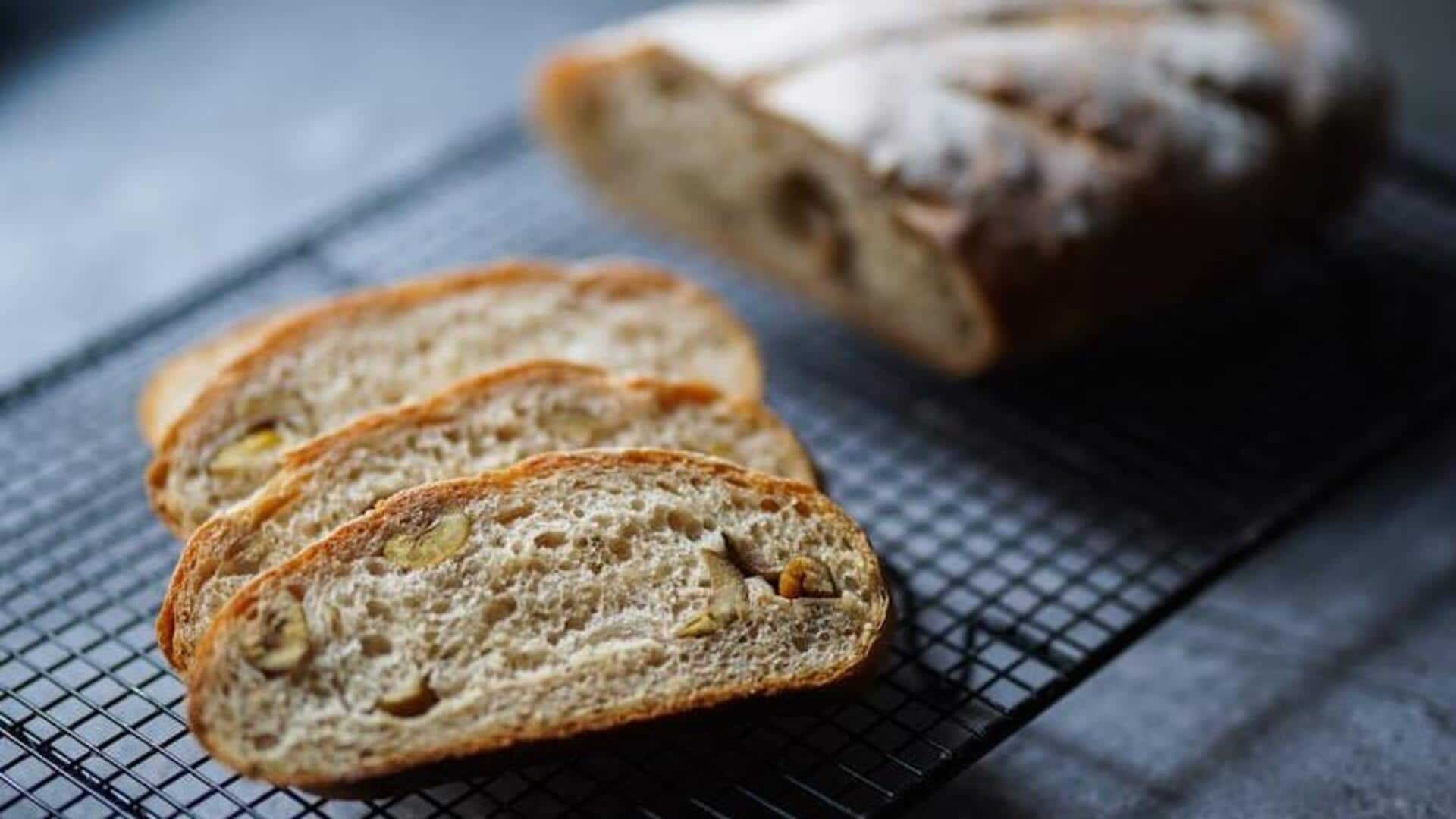
Budget-friendly DIY sourdough bread-making
What's the story
Baking sourdough bread at home is not only a fulfilling hobby but also a budget-friendly way to enjoy fresh, nutritious bread. This article delves into practical and cost-saving advice for beginners looking to venture into the world of sourdough bread baking without stretching their wallets. From cultivating your starter to baking your first loaf, these tips will demystify the process.
Starter creation
Start with homemade starter
Making your own sourdough starter is super cheap. Combine 100 grams each of flour and water in a jar. Cover with a cloth and let it sit at room temperature. Feed it every day with equal parts flour and water for five days until it gets bubbly. This way, you can save yourself $10-$20, which is the cost of a store-bought starter.
Bulk buying
Utilize bulk buying for ingredients
Buying ingredients in bulk greatly lowers the cost per loaf. Flour, being the primary ingredient, can be a lot cheaper if you buy it in larger quantities. For example, getting a 25-pound bag of flour reduces the cost by almost 50% compared to buying five-pound bags. Search for wholesale stores or local mills that provide options to buy in bulk.
Equipment savings
No special equipment needed
Turns out, you don't need fancy gear to make sourdough bread at home. While baking stones and Dutch ovens are nice, a regular baking sheet or any oven-safe pot with a lid will do just fine for beginners. Skip the pricey proofing baskets. Use a bowl lined with a well-floured towel to shape and proof your dough.
Waste not
Repurpose leftover starter
Sourdough starters need to be fed regularly, which involves removing a portion of the starter before introducing fresh flour and water. Rather than wasting the leftover starter, you can use it to make delicious pancakes, crackers, or even homemade pasta doughs. This way, you won't be wasting anything and will be getting the most out of your ingredients.
Community exchange
Share or swap ingredients with friends
Interacting with other home bakers opens the door for sharing or trading ingredients like specialty flours or seeds, which can be pricey or only come in larger quantities than a typical home baker needs. By joining local baking groups or forums online, you can find people with similar interests who are willing to swap items, ultimately saving everyone some money.